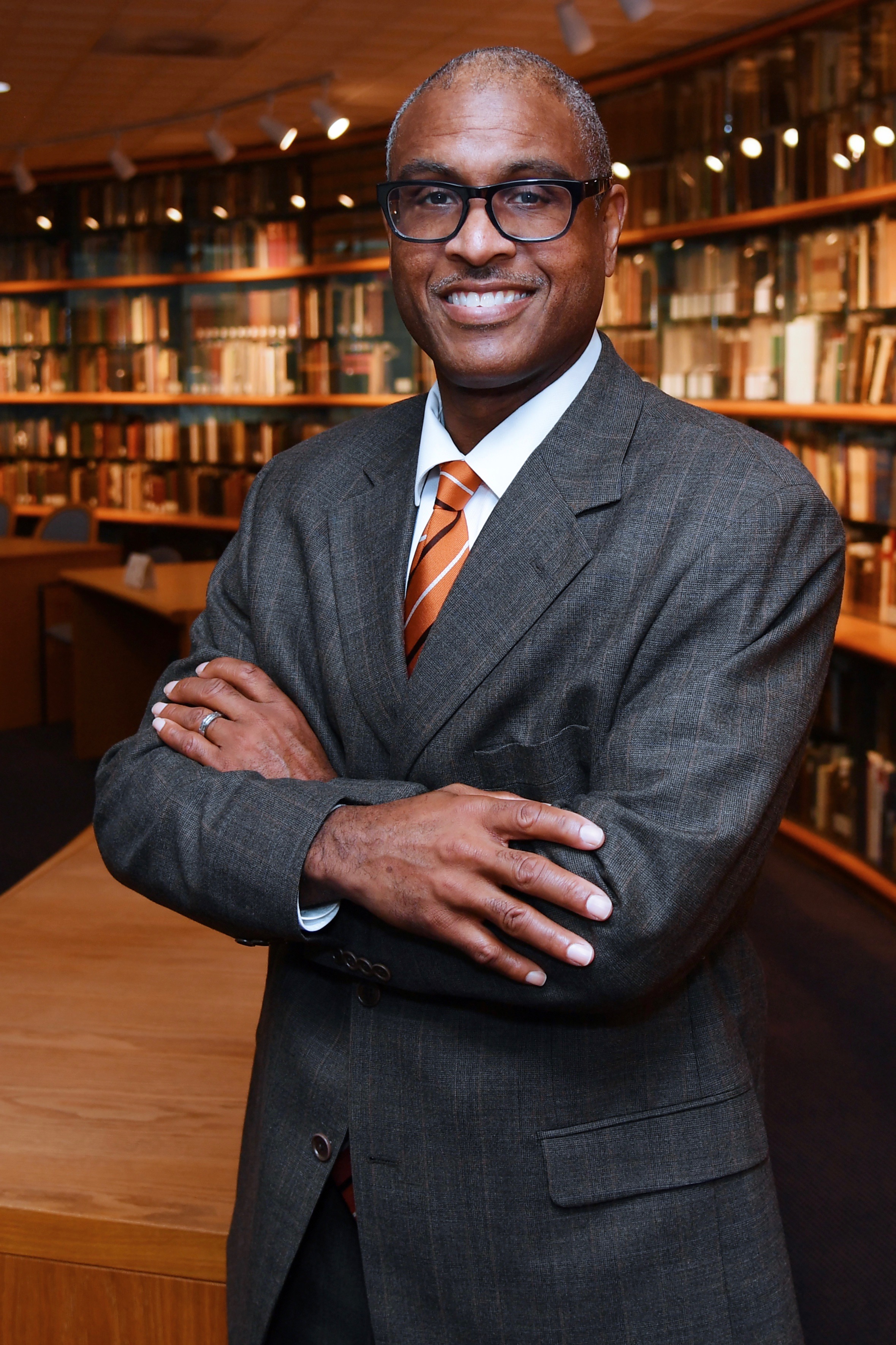UNC Charlotte Professor of English and American Studies Program Director Jeffrey Leak and colleagues have received a new American Association of University Administrators (AAUA) award for a special issue of the Journal of Higher Education Management that focuses on the twin pandemics of COVID-19 and racial justice and equity.
Guest editor Leak, senior guest editor Juanita Cole and guest editor Edward Martinez received the Christine Cavanaugh Award for Leadership in Diversity, Equity, and Inclusion for the special issue, published in 2021. Cole is dean of the College of Arts, Humanities and Social Sciences at California State University at Monterey Bay. Martinez is president of Luna Community College in Las Vegas, New Mexico.
The AAUA award recognizes “innovative and extraordinarily effective higher education administrative leadership in policy, programming, hiring, or mentorship to create and maintain institutional cultures of diversity, equity, and inclusion.” AAUA is a non-profit professional organization for higher education leaders and administrative personnel.
“The leadership these three guest editors demonstrated in editing this volume is obvious by the quality of the product of their work,” said Dan L. King, AAUA president and chief executive officer, who nominated the team. “They undertook the leadership of defining issues, identifying and recruiting potential authors, and then working to ensure that important matters related to diversity were addressed in a way that highlighted how the COVID-19 pandemic had severely impacted minority students in American colleges and universities.”
The attention the journal has received demonstrates its significance, with readers since its publication opening the online journal issue more than double the times that the previous record-holding issue was accessed.
Longtime Leadership
“Dr. Leak has been a leader in diversity, equity, and inclusion efforts throughout his career,” said Paula Eckard, chair of the UNC Charlotte Department of English. “He and his co-editors richly deserve the Cavanaugh Award for their work in bringing to light the enormous impact that the COVID-19 pandemic and concurrent racial issues have had on minority students. Their work will change how universities and colleges think about and respond to future crises.”
The idea for the special issue of the journal came about as the three editors participated in the American Council on Education Fellows program. They observed the decisions that institutional leaders made and processes they followed while responding to unfolding events, and determined the need for the publication.
“The events over the past year underscore the prevalence of systemic racism in America today and the inextricable role higher education must play in the solution,” the editors wrote. “The COVID-19 pandemic, coupled with the long festering wounds of racial injustice, disrupted higher education’s operations in unprecedented ways.”
Among the issues confronting academic institutions and their leaders were workforce disparities brought into focus by COVID-19, institutions’ financial futures, and potential disparities in instructional quality and in students’ academic performance due to limited internet access and the need for learning support services.
The articles included in the journal address three waves of the pandemic: crisis leadership responses, academic mission continuity, and planning for the future. The articles consider underlying issues of race, region, class, and equity in higher education through these three dimensions.
The editors point out the opportunity for equity-minded leadership and education. Such actions could include considering COVID-19’s effects on distinct communities and groups, addressing digital access gaps, and offering support for racially diverse faculty, staff and administrators called upon to mentor and support underrepresented students.
“Moving forward,” the editors wrote, “it is clear academic leadership is especially in demand for actively supporting faculty, students, and staff from racially underrepresented groups. College and university leaders need to incorporate principles centered on diversity, equity, justice, liberation, and inclusion into their COVID-19 responses. Higher education administrators must meet the challenge head-on and do the work required to bring equity to our college and university campuses across the nation.”
Words: Lynn Roberson | Image: Wade Bruton








